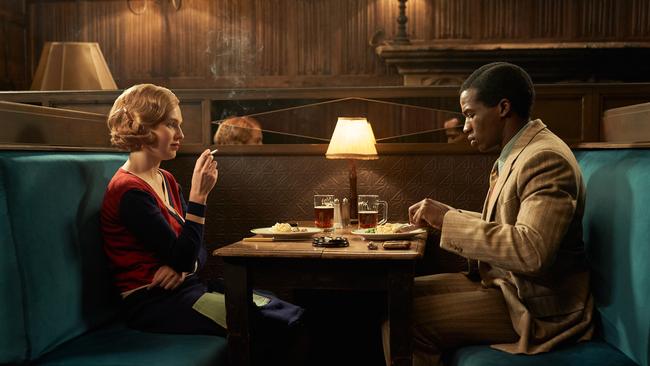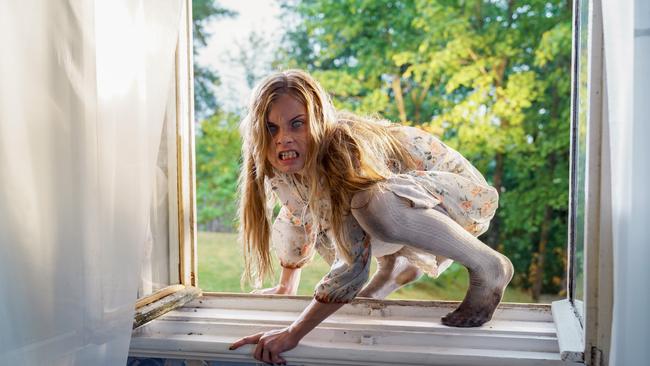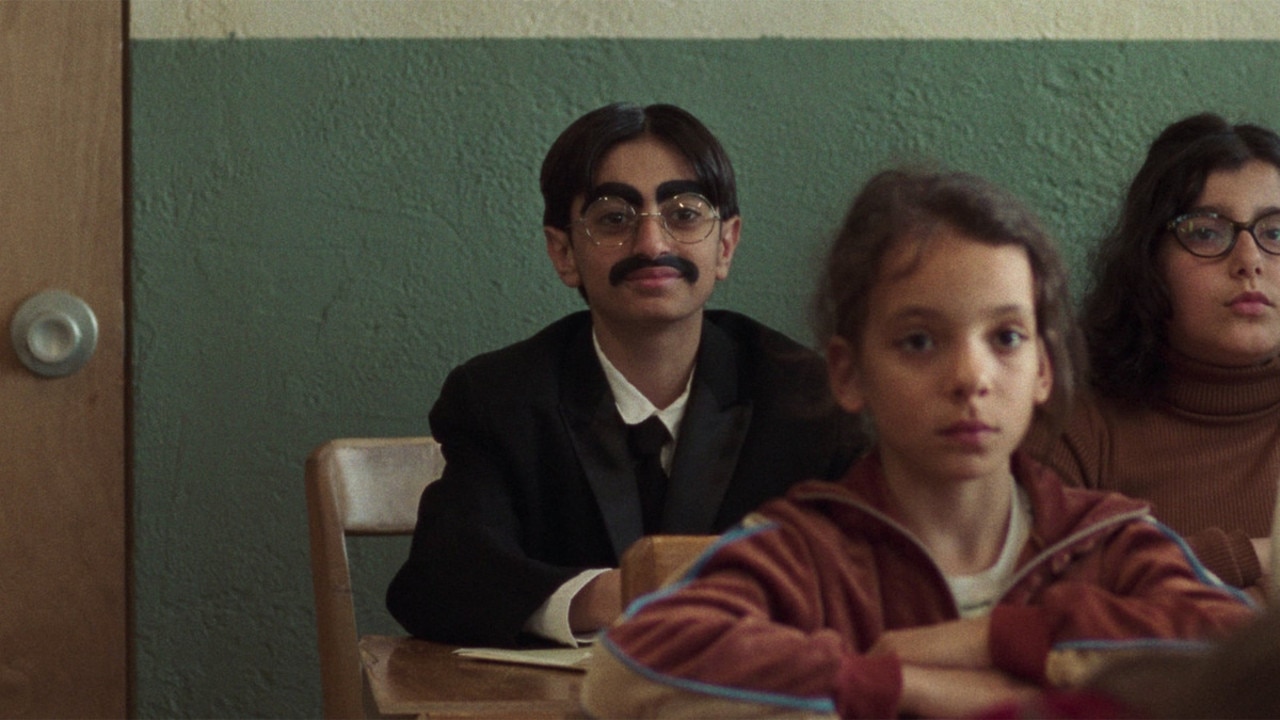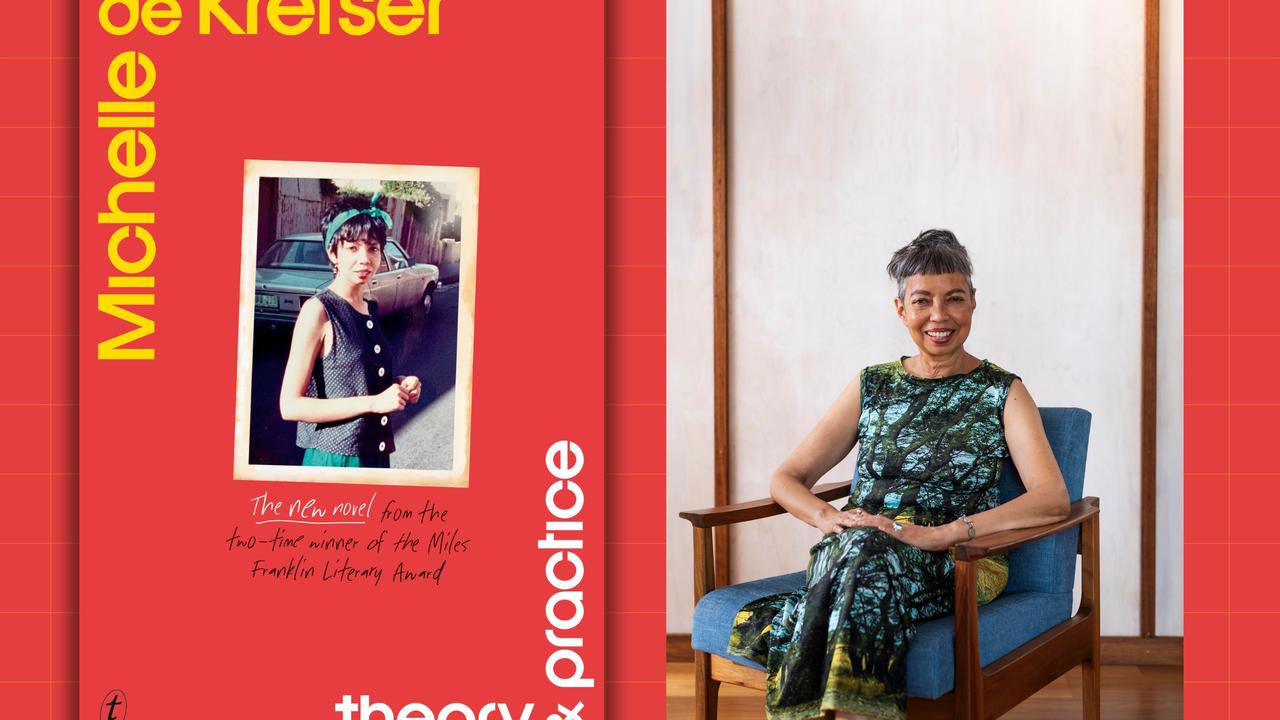Mothering Sunday: Poised for love and loss
Mothering Sunday succeeds both in its evocation of an erotic love affair and in its treatment of bereaved families who, despite their affluence, can never replace all that they’ve lost.

Mothering Sunday (MA15+)
In cinemas from Thursday
★★★★
The aftermath of the Great War saw a complete transformation of English society. So many young men had been killed in the brutal conflict that the number of single women had increased proportionately. In a class-conscious society, this imbalance impacted on the lives of the aristocrats and the working class without distinction.
Mothering Sunday, which is adapted from a novella by Graham Swift, focuses on three upper-class families, the Nivens, the Sheringhams and the Hobdays. Each family has lost sons in the war, and despite the apparent luxury in which they live, in large, gracious mansions with servants at their beck and call, a melancholy atmosphere pervades. However, on this particular day in 1924, Mother’s Day (or Mothering Sunday as it was called then) the families have cause for celebration. Paul Sheringham (Josh O’Connor), whose brothers did not return from the war, is to announce his engagement to Emma Hobday (Emma D’Arcy). The two families, together with the Nivens, have arranged to lunch by the Thames at Henley, where the engagement will be officially announced. Meanwhile, their servants are given a day off.
One of the maids working in the Niven household is 22-year-old Jane, played by the very talented Australian actor Odessa Young. Young scored an instant success in her first feature, The Daughter (2015), Simon Stone’s excellent adaptation of Ibsen’s The Wild Duck. Cast opposite Geoffrey Rush and Sam Neill, Young more than held her own and was awarded with Best Actress accolades from AACTA (Australian Academy of Cinema and Television Awards) and the Film Critics Circle of Australia. The same year she played the title role in Sue Brooks’s Looking for Grace, which was invited to compete in the Venice Film Festival. Young has since worked in the US in films and television and on the stage, but her role in Mothering Sunday is not only her most substantial since her early Australian films but also a remarkably bold achievement in its own right.
Jane, who is on good terms with her employers, especially Godfrey Niven (Colin Firth), is happy to have a free day because she is secretly involved in an affair with Paul Sheringham, and she cycles off to meet him in the otherwise empty Sheringham mansion. So while Emma and the others – who include Clarrie Niven (Olivia Colman) – await, with increasing impatience, the arrival of Paul in Henley, Jane and Paul enjoy some passionate lovemaking for what may well be the last time.
These scenes are handled with considerable frankness by French director Eva Husson, and both of the young actors deliver brave and uncompromising performances. The unbridled lust is evident between the servant girl and the man above her station; nothing permanent will come from the liaison, but Husson and her excellent actors vividly depict the doomed passion of the lovers.
The screenplay of Mothering Sunday, written by Alice Birch, does not confine itself to that balmy March day in 1924. We meet Jane again in later life, once in the 1950s when she is living with a philosopher, Donald (Sope Dirisu), and finally much later in her life when she has become an acclaimed and awarded author. In this sequence Jane is played by Glenda Jackson, who is appearing in her first film in 31 years, and it’s great to see her on the screen again.
It’s safe to say that had the film been made by a British director, someone like Joe Wright for example, it would have been very different. Husson brings a Gallic sensuality to the material but is also very good at capturing the pervading feeling of grief and loss that affects members of the three families; Firth is particularly skilled at capturing the bitterness beneath Niven’s superficial veneer of charm and privilege.
It could be argued that the three episodes of Jane’s life don’t connect as well as they might, and that Young is not entirely convincing when she’s playing Jane at the age of 56. But I was able to overlook these shortcomings because the film as a whole succeeds superbly both in its evocation of a sensual, erotic love affair and in its treatment of the bereaved families who, despite their elevated place in society, can never replace all that they’ve lost. Colman expresses this in a beautiful speech that gets to the core of this memorable drama.
-
Hatching (Pahanhautoja) (MA15+)
In cinemas
★★★★
Hatching is an accomplished Finnish thriller in which a “perfect” family is subjected to sinister, supernatural events. Vain and selfish Aiti (Sophia Heikkila), who is constantly filming material for her blog, “Lovely Everyday Life”, neglects her husband, Isa (Jani Volanen) and young son, Matias (Oiva Ullila), to concentrate on her daughter, Tinja (excellent Siiri Solalinna), a tween who spends the hours when not at school practicing for an upcoming gymnastic competition.
The blandly perfect, pastel-coloured life of this supposedly happy family, is breached one day when a bird flies into their living room; Aiti breaks its neck and Tinja is given the job of throwing the body in the garbage. But that night Tinja ventures into the nearby forest where she finds an egg which she brings home and hides in her bedroom. In due time the egg hatches and a horrible, skeletal bird-like creature with enormous eyes emerges. Later this weird creature morphs into Tinja’s evil twin, a monster that sets about taking revenge on Tinja’s “enemies”, including the girl next door (whose dog is an early victim) and Aiti’s lover, Tero (Reino Nordin), a likeable widower with a small baby.
This artful combination of horror film and pubescent trauma is distinguished by its insights into the world of its young teen heroine, a world of jealousies, grudges and nightmares. Director Hanna Bergholm and writer Ilja Rausti have transformed what could have been a routine monster movie into a small film worth seeking out – though it’s getting a very limited release.

-
Pil’s Adventures (PG)
In cinemas
★★½
In recent months several high quality Japanese animated films have received limited release in Australian cinemas. Placed alongside them, the French film, Pil’s Adventures, is at a distinct disadvantage. This is partly because, unlike the anime films which have invariably been shown here in the original language versions (with sub-titles) Pil’s Adventures is being screened in an English-language version which means that almost all the characters speak with very broad American accents except for the villain who is given a preposterously affected English voice.
Writer-director Julien Fournet seems to be influenced by the Shrek films, but this is not nearly as funny. Pil’s Adventures is set in the medieval town of Foggy Burrow (Roc-en-Brume is the far more evocative French name for the place). Tristain, an evil usurper – you know he’s evil because he dresses in black and sports that British accent – is determined to keep Roland, the rightful heir, from inheriting the throne. This is achieved by giving the hapless Prince poison that turns him into a half-chicken, half-cat.
Fortunately Pil, a sprite who spends her time with her friends the weasels, is on hand to save the day. With the help of Robart, a gormless fellow who yearns to become a knight, and Jiggler, a jester, Pil sets about restoring Roland to his usual self and ensuring he inherits his father’s throne. Their adventures include encounters with a shepherd who is transformed into a ferocious unicorn – this may well scare small children for whom unicorns have very different connotations – and a yellow-eyed dog who becomes a fire-breathing dragon.
The humour is very forced, and the plotting very derivative. Jiggler has a Muppet-like glove puppet that has a life of its own, an idea that seems to be derived from past thrillers like Dead of Night (1945) and Magic (1978), and which seems very out of place in this context.




To join the conversation, please log in. Don't have an account? Register
Join the conversation, you are commenting as Logout